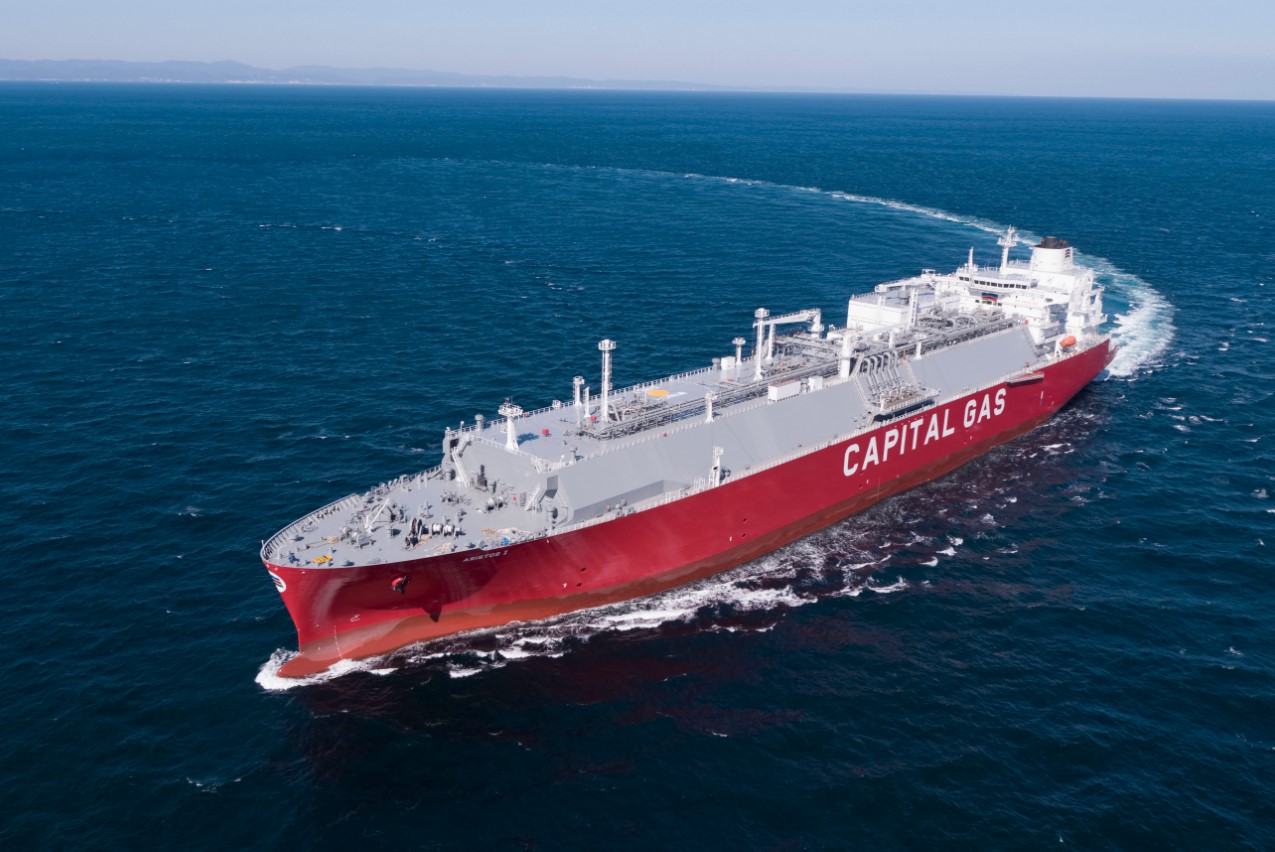Greece’s Capital Gas Ship Management is joining forces with Finland’s Wartsila to further slash emissions from its managed fleet of six liquefied natural gas (LNG) carriers.
In that regard, the two firms agreed in June this year to partner in the development of a new fleet decarbonization program aimed at achieving defined decarbonization targets, according to a statement by Wartsila issued on Wednesday.
Under the agreement, Wartsila will assist Capital Gas with advanced planning, and with support in assessing and assuring the performance of investments designed to meet the company’s greenhouse gas reduction ambitions.
The agreement, which is a tailored version of Wartsila’s decarbonization service initiative, includes a fleet of six 174,000-cbm LNG carriers within the Capital Gas management portfolio, Wartsila said.
Moreover, the decarbonization program includes a detailed carbon intensity indicator (CII) compliancy analysis of the vessels, predicting the fleet’s status in reference to the 2030 targets.
The analysis will be based on advanced machine learning algorithms utilizing extensive data on, among other things, vessel movements and locations, and the technical characteristics of each ship.
Wartsila said the algorithms are powered by the company’s CII Insight – a new set of capabilities that enable owners to forecast a vessel’s compliance with CII, and to understand the impact of alternative solutions.
In September last year, Evangelos Marinakis-led Capital Gas took delivery of the sixth LNG carrier, Asklipios, chartered by Cheniere.
New York-listed Capital Product Partners bought all of these six LNG carriers as well as the 174,000-cbm, Asterix I, scheduled for delivery in January 2023.
Besides these seven LNG carriers, Capital Gas has seven more vessels on order in South Korea scheduled for delivery between 2023 and 2026.

